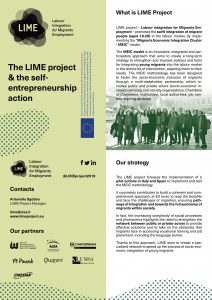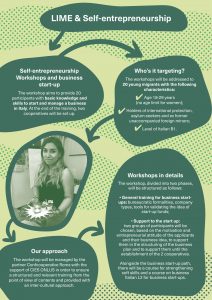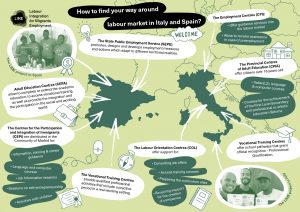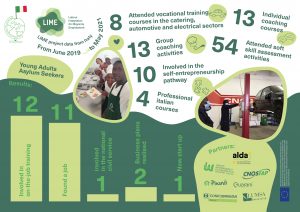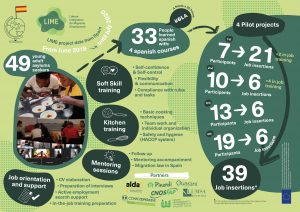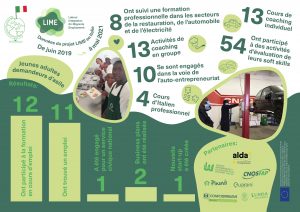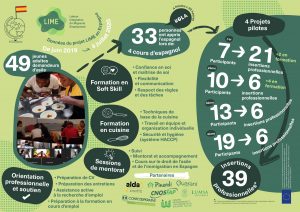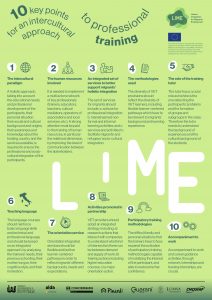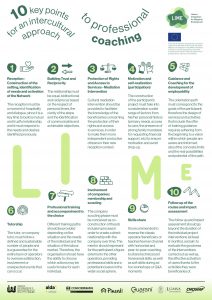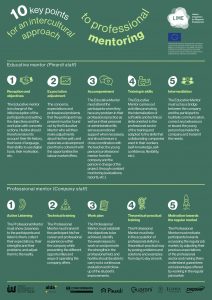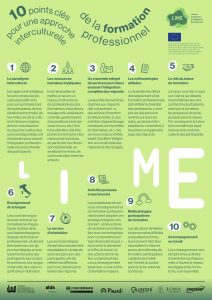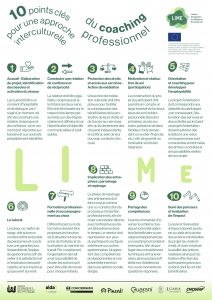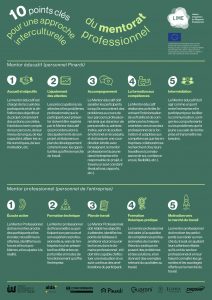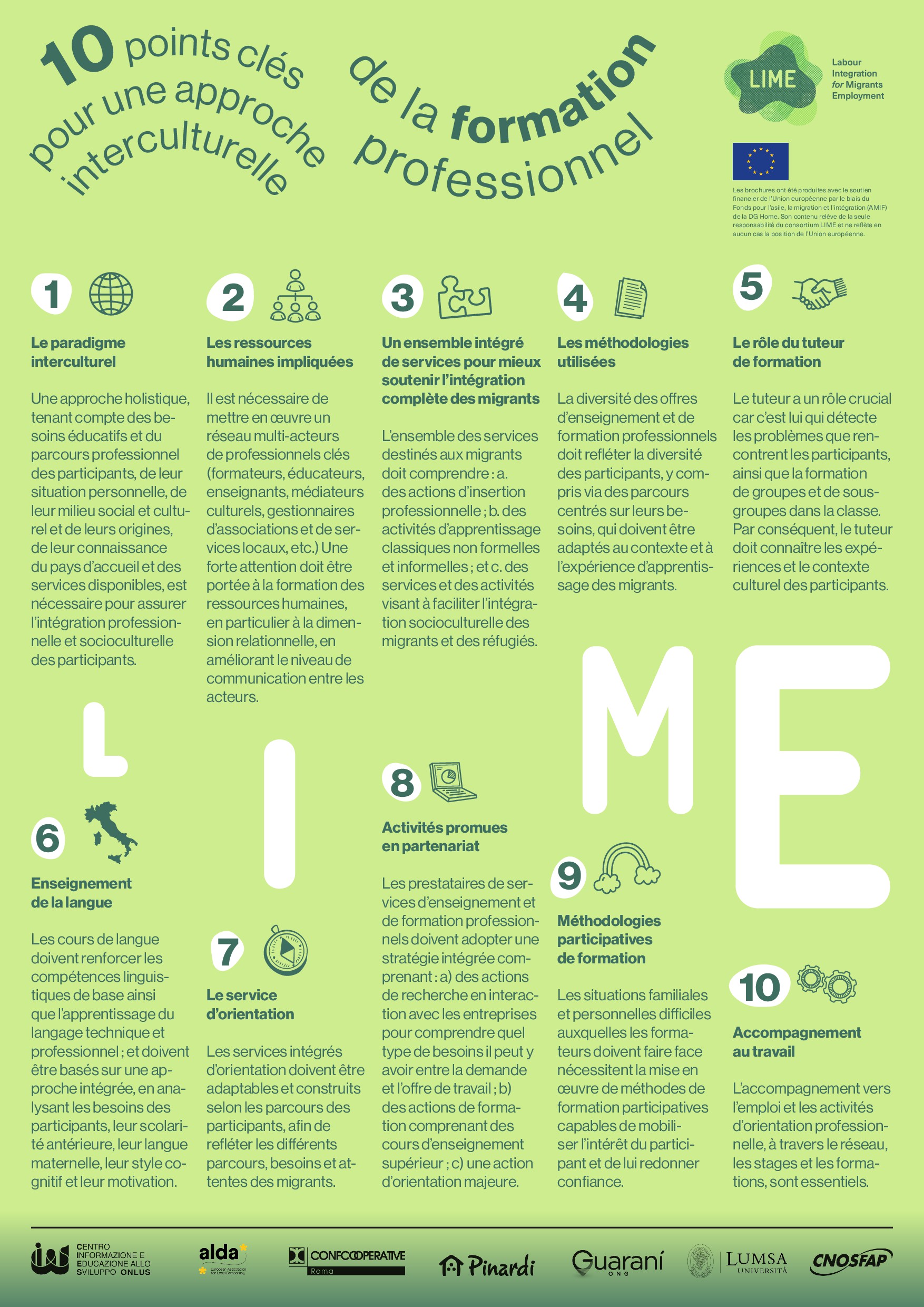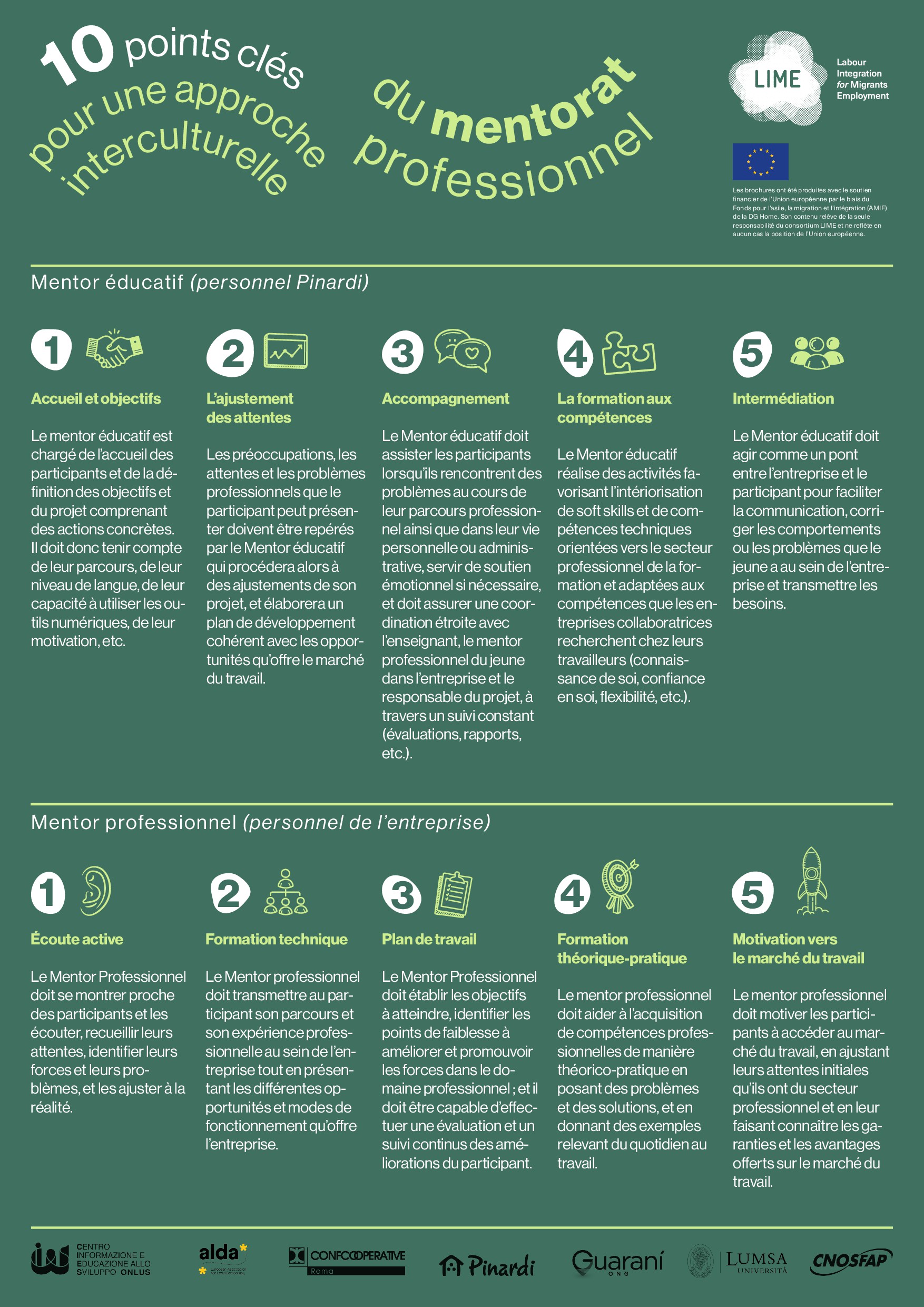Migrants Economic Integration Cluster
What is the MEIC methodology?
MEIC is a methodology to facilitate the inclusion of Third Country Nationals (TCNs), aged between 18-29, into the labor market which involves groups of socioeconomic actors cooperating through mutualised resources, knowledge and services within a common management system.
The MEIC methodology foreseen activities aimed to establish collaboration and shared objectives among socio-economic actors, which are engaged to promote third country nationals integration in the labour market as an element of local development by creating cluster networks among public and private key stakeholders.
MEICs are highly participatory and require permanent contributions defined in the framework of a long-term strategy. By being bonded to a limited territorial area such as a city or a region, MEICs enable context sensitive solutions, maximizing local strengths and building up local weaknesses.
The LIME project intends the development of the an Italian and a Spanish MEIC strategic action plan, in parallel with the implementation of two pilot actions in Rome and in Madrid.
PILOT PROJECT - ROME
How the MEIC methodology has been developed in Rome?
90 socio, economic and political actors have been mapped and divided into four groups: housing, education, training and job, culture and sport, institutions and trade unions.
The MEIC methodology is developed in 5 steps:
- Network activation = potential partners are targeted
- Arranging interaction = definition of rules for the collaboration to avoid a free-rider behaviour
- Brokerage = matching problems, solutions and actors
- Facilitating interaction = common activities, scheduling of meetings and a steady monitoring of the dialogue among the members of the network
- Mediation and arbitration if conflicts emerge
The two focus groups and the interviews among key socioeconomic stakeholders led to the identification of the following networks:
- Cooperative networks = informal relationships between the LIME partners and the organizations that work in similar sectors to activate informal practices of information and expertise sharing.
- Coordinated networks = between the LIME partners, public institutions and the actors working in the sectors complementary to the labour integration of TCNs to coordinate with organisations providing reception services, legal support, psychological support and cultural mediation in the broadest sense.
- Collaborative networks = among the actors interested in participating in the project that will define not only traineeships but also innovative policies to solve local significant issues.
For more detailed info, please read the document below.
PILOT PROJECT - MADRID
How the MEIC has been developed in Madrid?
Through a qualitative methodology based on in-depth interviews with the partners of Spanish territorial cluster, Pinardi and Guaranì, and and Grupo VIPS, in order to explore the structure of each organisation and their cluster’s activities in the local community.
The Spanish Territorial Cluster Working Group decided to test the effectiveness of the “First Professional Experience” programme on the vulnerable target of young TCNs (aged 18-29) and to monitor and evaluate its impact on two levels:
- The impact of vocational and training programme on social integration of beneficiaries
- The impact of network dynamics on the territorial cluster itself.
They have activated a coordinated network focused on the integration of services for solving the problem of TCNs’ economic integration.
The action has been developed in three phases.
- Pre-recruitment: the profile of beneficiaries (aged 18-29, having an asylum renovation request opened) was shared with Pinardi’s platforms and other organisations in order to spread the call in the community of Madrid.
- Vocational guidance: Pinardi and Guaranì have defined two informative paths, one aimed to orientate beneficiaries towards market trends and active labour market policies, the other aimed to introduce beneficiaries to the labour rights and duties.
- Training programmes: during each cycle, Pinardi, Guaranì and VIPS activate training programmes, according to the assessment of skills and training needs and their matching with labour market needs analysis.
This plan will contribute to the:
- Promotion of a multi-stakeholder approach since a coordinated effort is essential to meet TCNs’ needs;
- Improvement of the exchange of information and training courses on the evolution of migration phenomenon to make civil society organisations able to offer adequate services to TCNs;
- Encouragement of the dialogue with local governments to provide feedback on specific challenges faced in the economic integration process of TCNs.
MIGRANTS’ ECONOMIC INTEGRATION CLUSTER
COMIC - KALA ËLLËK
The LIME project supports the European Commission’s initiative Employers together for integration because it believes that the successful integration of third country nationals in the EU labour market, not only improves its functioning, performance and fiscal sustainability, but it is also an opportunity for our societies.
Employers can join the initiative by filling in this form and describing what kind of actions they are doing to support the integration of migrants and refugees into the labour market and in their workforce.
By taking part in this initiative, employers commit to the idea of “contributing to making Europe a place where a different origin or nationality does not impact or limit opportunities and participation”.
The European Commission will make the contribution visible on its website, giving the possibility to the employers to make their actions known and to be part of a big European network of employers, social enterprises and civil society organisations that recognize the value of migrants’ skills, talents and competences.
Click to enlarge






